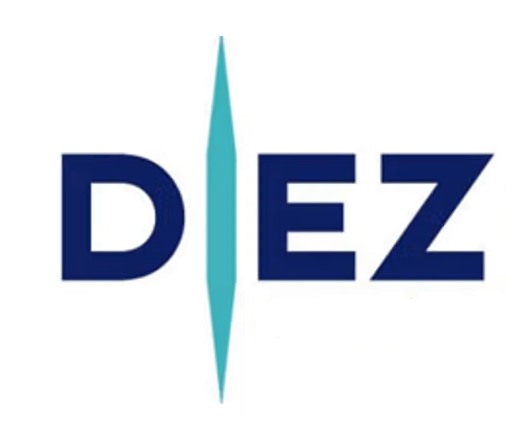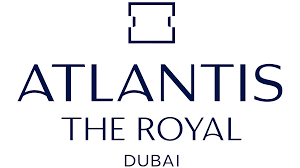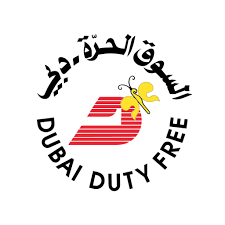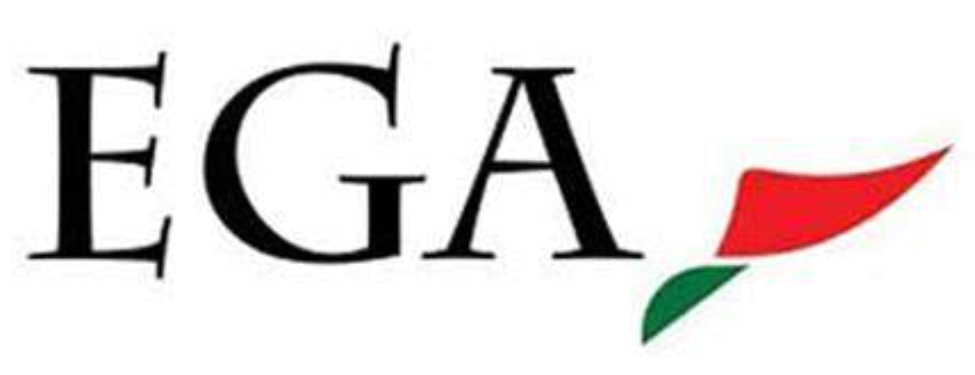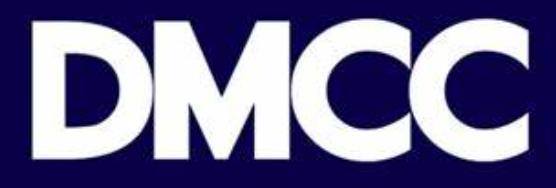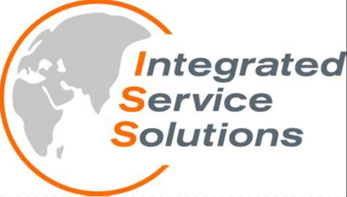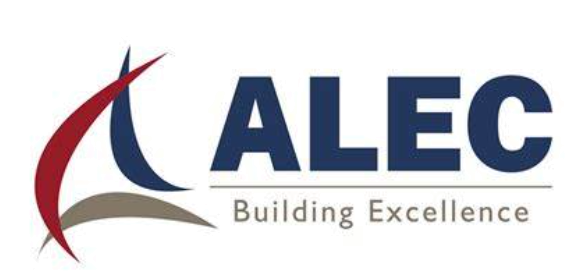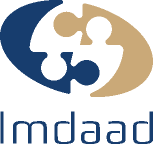About Dubai
Dubai stands as a prominent financial and commercial hub, firmly securing its place among the world's rapidly evolving and cosmopolitan cities. As one of the seven emirates comprising the United Arab Emirates, Dubai has established itself as a pivotal player on the global stage.
Situated on the southwest corner of the Arabian Gulf, Dubai spans an area of 4,114 square kilometers, making it the second-largest city in the United Arab Emirates. This strategic location has enabled Dubai to become a key world, trade, commercial and tourism hub.
Dubai exemplifies a diverse and dynamic economic landscape; its GDP is diversified and falls into twenty economic categories, with over 95% being non-oil based.
Key facts about Dubai
Dubai Infrastructure
Highly Developed Surface Infrastructure:
With a vision of safe and smooth transport across the Emirate, Dubai aims to create integrated networks connecting transportation and urban planning.
Length of roads has increased to 18.9 km as of 2024, with 40% increase since 2016
Metro passenger trips have increased to 380 million passengers as of 2024, 98.7% increase since 2016.
395million passengers travelled on public transportation in H1 2025, 9% increase from the same period last year.
Leading Aviation Infrastructure Connecting the East to the World:
Dubai airports were a strategic area of focus in the Dubai Strategic Plan 2020 and a focus on succeeding Dubai Strategic Plan 2030.
Leading Global Trade Enabler
Largest Port in the
Middle East with 15.5 mn TEU
shipping container volume handled (2024)
The leading cruise tourist
destination in the Middle East
The world’s largest container
terminal operator.
Population
The population of Dubai has grown significantly since 1985, reflecting an influx of foreign labor, principally from Asia, as the Emirate has developed. The following table illustrates this growth since 2005 for the city of Dubai:
| Year | 2005 | 2010 | 2015 | 2020 | 2024 |
|---|---|---|---|---|---|
|
Total Population (in million) |
1.2 | 1.9 | 2.5 | 3.4 | 4.2 |
| Growth | - | 59% | 28% | 39% | 24.5% |
| Year | Total Population (in million) |
Growth |
|---|---|---|
| 2005 | 1.2 | - |
| 2010 | 1.9 | 59% |
| 2015 | 2.5 | 28% |
| 2020 | 3.4 | 39% |
| 2024 | 4.2 | 24.5% |
Dubai Strategies and Initiatives
Since the establishment of the UAE in 1971, Dubai has developed its status as a major city, enhancing the well-being of its people and creating an environment that attracts businesses and individuals. To support, maintain, and develop this status, the Government intends to focus on:
Dubai 2040 Urban Master Plan
In March 2021, the Ruler of Dubai announced the launch of the Dubai 2040 Urban Master Plan, which outlines Dubai’s development framework for sustainable urban development over the next 20 years. The Dubai 2040 Urban Master Plan was intended to align with the We the UAE Vision 2031, a national development plan launched by the UAE Federal Government in 2022. The central focus of the Dubai 2040 Urban Master is to promote happiness and enhance the quality of life for all people in Dubai. As part of this aim, the Dubai 2040 Urban Master Plan intends to achieve the following by 2040:
For more details on the Dubai 2040 Urban Master Plan, kindly visit the website here
Dubai Economic Agenda (D33)
In January 2023, the Ruler of Dubai announced the launch of the Dubai Economic Agenda (D33), which outlines Dubai’s goal to double the size of its economy over the next decade and consolidate its position among the top three global cities.
Doubling the size of Dubai's foreign trade and adding 400 cities to Dubai's foreign trade map
Launching Dubai's plan for green and sustainable manufacturing
Launching Dubai's Future Economic Corridors 2033 with Africa, Latin America and Southeast Asia
Launching a scale-up programme for 30 companies aiming to become global unicorns in new economic sectors
Integrating 65,000 young Emiratis into the job market
Launching a “Dubai Traders” project to empower the next generation of traders in key sectors
Launching Dubai's unified licence as a unique commercial identity for all companies all over Dubai
Launching “Sandbox Dubai” to allow testing and commercialization of new technologies and making Dubai a major innovation hub
Launching a programme to attract the world's best universities, making Dubai a global pioneering hub for higher education
Developing an SME scale-up programme by identifying 400 high-potential companies, supporting their capacity building, and supporting them to grow globally
For more details on the Dubai Economic Agenda (D33), kindly visit the Executive Council's website here
Green and Sustainable Initiatives
The Dubai government has launched various strategic initiatives and projects to enhance its economy, infrastructure, technology, sustainability, and overall quality of life for its residents and visitors. Recognizing the importance of sustainability and environmental conservation, Dubai has implemented several green initiatives to promote eco-friendly practices and reduce its ecological footprint.
-
 Clean Energy Strategy 2050
Clean Energy Strategy 2050
-
 Mohammed bin Rashid Al Maktoum Solar Park
Mohammed bin Rashid Al Maktoum Solar Park
-
 Jebel Ali Power Plant and Water Desalination Complex
Jebel Ali Power Plant and Water Desalination Complex
-
 Dubai Waste-to-Energy
Dubai Waste-to-Energy
-
 Dubai Can
Dubai Can
-
 Dubai Carbon Centre of Excellence
Dubai Carbon Centre of Excellence
-
 Zero-emission Public Transport by 2050
Zero-emission Public Transport by 2050
-
 Dubai Autonomous Transportation Strategy
Dubai Autonomous Transportation Strategy
-
 Dubai Paperless Strategy (Dubai Digital)
Dubai Paperless Strategy (Dubai Digital)
-
 Green Technology (Dubai FDI)
Green Technology (Dubai FDI)
-
 Green Building (Dubai Municipality)
Green Building (Dubai Municipality)
-
 Dubai Green Fund
Dubai Green Fund
-
 Shams Dubai Initiative
Shams Dubai Initiative
-
 Policy on usage of single-use bags
Policy on usage of single-use bags
Overview
The Investment Corporation of Dubai (‘ICD’) and Dubai Investment Fund (‘DIF’) are the two investment arms of the Government of Dubai. They manage diverse portfolios, including stocks, bonds, and other financial instruments, across various regions and sectors to achieve appropriate risk-adjusted returns and manage associated risks. In May 2006, ICD was capitalized with the transfer of certain investments under the Government’s portfolio from the Department of Finance - Investments Division. DIF was established in December 2023, without infringing upon the powers and jurisdictions granted to the ICD.
Investment Corporation of Dubai
Investment Corporation of Dubai - Dropdown Icon
The Investment Corporation of Dubai (‘ICD’) is the principal investment arm of the Government of Dubai, was established on the 3rd of May 2006 pursuant to a decree of the Ruler of Dubai. ICD manages a diverse portfolio of assets across various regions and sectors. In May 2006, ICD was capitalized with the transfer of certain investments under the Government’s portfolio from the Department of Finance - Investments Division.
ICD’s mandate is to:
- Consolidate and manage the Government’s portfolio of commercial companies and investments; and
- Provide financial and strategic oversight to the portfolio companies in order to maximize value for the long-term benefit of the Emirates of Dubai.
ICD’s Portfolio
ICD manages a broad portfolio of assets, both locally and internationally, across a wide spectrum of sectors..
Financial Performance
Portfolio Companies
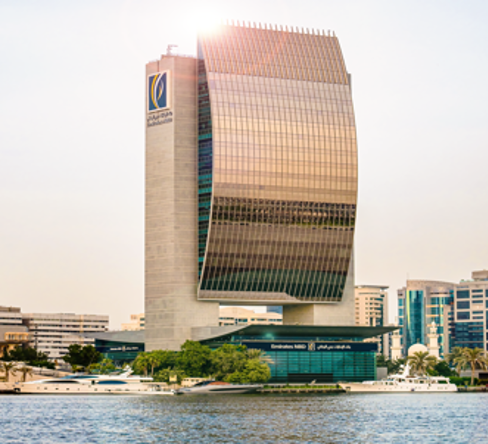
Banking & Financial Services
ICD’s Banking and financial Services Segment comprises financial institutions such as Emirates NBD and Commercial Bank of Dubai as well as Islamic principle based financial institutions such as Dubai Islamic Bank and National Bonds Corporation.
ICD’s portfolio also includes ownership in key financial exchanges held through Borse Dubai's controlling stakes in the DFM and Nasdaq Dubai as well as a significant investment in Nasdaq Inc.
Built on strong banking fundamentals and further supported by robust risk and governance frameworks, ICD’s banking and financial services companies seek opportunities to grow their business to enhance their local and regional presence and corporate profiles.
Transportation
ICD’s Transportation Segment is primarily focused on the aviation industry, an area of key importance to the economy of Dubai.
ICD’s portfolio companies Emirates, dnata, flydubai and DAE continue to consolidate their position as leaders in their respective aviation sector amidst an extremely volatile and competitive landscape. The airlines and airport services components of this sector have been redefining the passenger experience by offering industry-leading ground support and in-flight experiences through innovation and increased collaboration. The aircraft leasing and financing components have grown, further strengthening Dubai's position as an aviation finance hub.




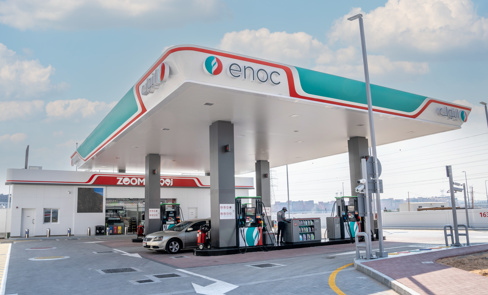
Oil & Gas
ICD’s Oil & Gas Segment includes Emirates National Oil Company (ENOC) a company established in 1993 that operates across the oil and gas value chain with upstream, midstream, and downstream activities.
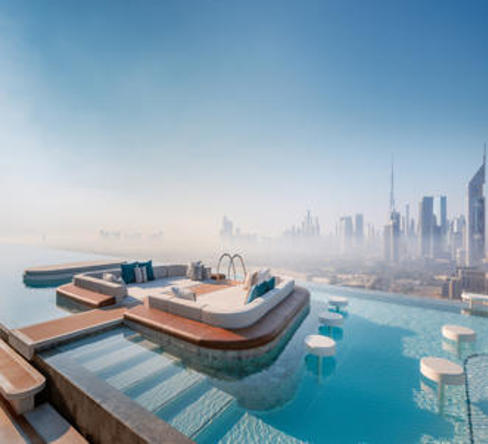
Others
ICD’s Other Segment includes portfolio companies that operate mainly within the:
- Real estate & Construction sector
- Hospitality & Leisure sector
- Retail sector
- Industrial sector
- Others
The activities within this segment are diversified and include core activities of Dubai, such as real estate and hospitality, with some of the Dubai’s most renowned assets, as well as other activities carried out for diversification purposes. These assets are constantly evolving with the potential to grow and contribute further to ICD’s overall economic and value-generation objectives.
Dubai Investment Fund
Dubai Investment Fund - Dropdown Icon
The Dubai Investment Fund (‘DIF’) is committed to actively contributing to the strategic priorities of the emirate and supporting endorsed public policies through effective investments in strategic and developmental projects. Its precedence is placed on prioritizing initiatives that promote Dubai's sustainable development, particularly in sectors such as the economy and society, while concurrently diversifying sources of income.
The Objectives of the Fund:
Developing government funds, surplus, and general reserves in accordance with the best sound and safe practices.
Enhancing the stability of the government's financial position by financing the government deficit and establishing resilient fiscal reserves that contribute to achieving long-term fiscal sustainability.
Actively participating in effectively executing investments in strategic and developmental projects, aligning with the highest professional standards and international best practices with an objective to elevate economic growth within the Emirate
Enhancing the government's capabilities in achieving sustainable development of the emirate by directing investments towards vital and sustainable sectors supporting economic and social development in the emirate.
Contribute to achieving the economic diversification of the emirate by investing government assets and funds in various sectors and industries both domestically and internationally.
Portfolio Companies
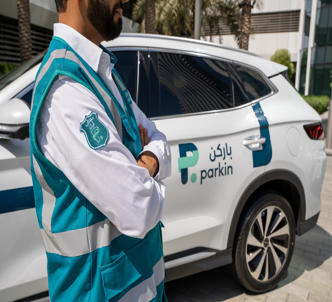
Infrastructure Sector
Parkin Company PJSC is the largest provider of paid public parking facilities and services in the Emirate of Dubai, with a unique blend of operational excellence, technological know-how and enforcement capability spanning almost three decades. As of year-end 2024, the Company’s portfolio comprised approximately 206k paid parking spaces.
Parkin has exclusivity on Dubai’s on and off-street paid public parking market and a leading share of the total on and off-street paid parking market.
Under a 49-year Concession Agreement with Dubai’s Roads and Transport Authority (RTA), Parkin has the exclusive right to operate a portfolio of public on and off-street parking (c.184k spaces) as well as public multi-storey car parking facilities (c.3k spaces). Parkin also operates certain developer-owned parking facilities through partnership agreements across the Emirate (c.19k spaces) and provides barrierless and ticketless parking for Majid Al Futtaim across two malls. Additional revenue streams include enforcement, the issuance of seasonal permits, parking reservations and other commercial activities.
By deploying state of the art digital payment solutions and intelligent parking management systems that utilise artificial intelligence and big data analysis, Parkin’s customers successfully conducted 132m parking transactions during in 2024.
Dubai's parking operations were established in 1995 under the Dubai Municipality, before becoming part of the RTA in 2005. In December 2023, Parkin Company PJSC was established through the issuance of Law No. 30 of 2023, successfully completing its initial public offering (IPO) on the Dubai Financial Market in March 2024.

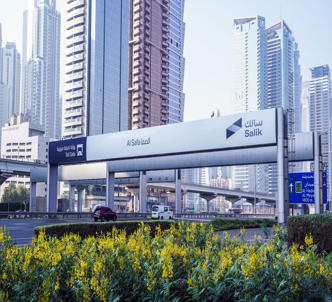
Infrastructure Sector
Salik Company PJSC was established through the issuance of Law No. (12) of 2022. It was formerly part of the Roads and Transport Authority (RTA) and has operated as Dubai’s exclusive road toll system since 2007. Salik announced its intention to float 24.9% of its total issued share capital on the Dubai Financial Market (“DFM”) and was officially listed on the DFM on the 29th of September 2022. The Dubai Investment Fund continues to own 75.1% of Salik following the IPO in September 2022.
Salik currently operates ten toll gates along parts of Sheikh Zayed Road, Dubai’s premier traffic corridor, Al Khail Road, Al Maktoum Bridge, as well as the Airport Tunnel, enabling the fluid movement of almost 4.4 million registered vehicles. In FY 2024, 638 million journeys were made through the Salik toll gates, which includes tourists making their way to Dubai’s many attractions, or residents efficiently travelling as part of daily life. Salik operates through a 49-year concession agreement with the RTA that extends till 2071, under which it has the exclusive right to operate and collect tolls from the existing Salik gates and any future gates. Salik has expanded its service offering to pursue additional opportunities beyond the core tolling business. The company offers Parking Payment Solutions at the world-famous Dubai Mall as well as in Partnership with Parkonic across the UAE. In addition, insurance services are offered through partnership with LIVA, the leading insurance provider in the region.

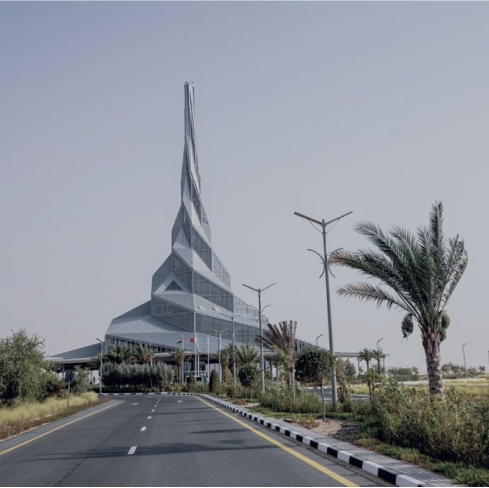
Energy Sector
Dubai Electricity And Water Authority PJSC
Dubai Electricity and Water Authority (DEWA) was formed in 1992 following the merger of Dubai Electricity Company and Dubai Water Department. Since its inception, DEWA has been the sole supplier of electricity and water in Dubai. DEWA generates, transmits and distributes electricity and is connected to the Emirates National Grid. While DEWA maintains an independent corporate status, it has historically been wholly owned by the Government, with the tariffs it establishes for electricity and water subject to government regulation.
The Fund continues to own 82% of the company following the IPO in April 2022.

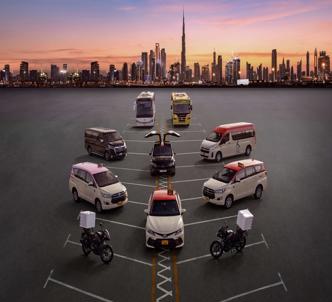
Transportation Sector
Dubai Taxi Company, a public joint stock company (PJSC) listed on Dubai Financial Market under Law No. (21) of 2023 is a leading provider of comprehensive mobility solutions in the Emirate of Dubai, and the largest taxi operator in the emirate. DTC currently operates more than 9,000 vehicles (of which around 6,000 are taxis) and manages a workforce of more than 17,500 driver partners.
Founded in 1994, DTC initially focused on taxi operations but has since expanded to offer a diverse range of integrated mobility solutions across four primary business lines: taxis, VIP limousines, buses, and delivery services via delivery bikes.

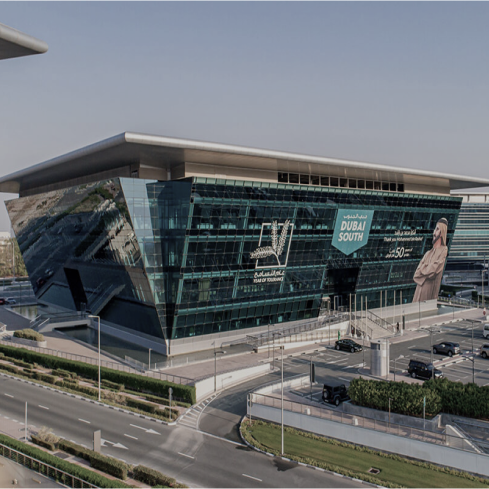
Logistics Sector
Dubai World is a holding company formed in 2006 pursuant to a decree issued by the Ruler of Dubai, operating through four segments: transport and logistics; drydocks and maritime; urban development and investments and financial services. Dubai World holds shares in some of the world’s leading companies in their industries including DP World one of the largest marine terminal operators in the World.
As per the Law No. (25) of 2023, Dubai World is affiliated to DIF but will retain the independent legal personality.
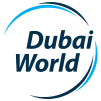
Dubai Economy
Dubai, an emirate in the United Arab Emirates (‘UAE’), has undergone a remarkable economic transformation over the past few decades, evolving from a traditional, oil-dependent economy to one that is diversified and dynamic. The emirate's economy is characterized by a robust mix of sectors, reflecting a deliberate strategy to reduce dependence on oil and create a sustainable and resilient economic foundation. Dubai has embarked on a strategic plan to diversify the economy, aiming to decrease reliance on oil revenues and foster growth in non-oil sectors.
Dubai's diversified economy, encompassing trade, tourism, business, real estate, and technology, has created a well-rounded and resilient economic ecosystem. This diversification strategy has not only mitigated the impact of oil price fluctuations but has also positioned Dubai as a global economic player with a diverse and sustainable GDP.
Overview of Dubai’s GDP
Overview of Economic Key Sectors
The Dubai Gross Domestic Product (‘GDP’) is driven by various key sectors that contribute to its prosperity and global significance. Dubai's economic success is a harmonious blend of these sectors, fostering resilience and sustainability. The interplay among these key sectors defines Dubai's economic narrative on the world stage. A concise overview of the key contributors to Dubai's GDP highlights its diverse economy.
Sectors Breakdown - 2024
Wholesale and Retail Trade
Real GDP
(in Billion AED)
Dubai's Wholesale and Retail Trade sector is a vibrant economic pillar, contributing significantly to the emirate's GDP. Renowned globally as a premier retail destination, Dubai offers diverse shopping experiences from luxurious malls to traditional markets. Districts like Downtown Dubai and events like the Dubai Shopping Festival attract a wide audience. The sector's growth is bolstered by Dubai's strategic location, facilitating efficient trade and supply chain activities. With a focus on innovation, luxury retail, and immersive shopping experiences, Dubai's Wholesale and Retail Trade sector epitomizes the emirate’s global prominence.
Real Estate Activities and Construction
Real GDP
(in Billion AED)
Dubai's Real Estate and Construction sector is a dynamic force propelling the emirate's economic development. Renowned for its skyline, the sector is marked by iconic landmarks such as the Burj Khalifa and Palm Jumeirah. The emirate’s commitment to innovation in architecture and construction has positioned it as a global leader, attracting international attention. With continuous investments in luxurious developments and modern infrastructure, the Real Estate and Construction sector stands as a symbol of Dubai’s forward-looking vision.
Transportation and storage
Real GDP
(in Billion AED)
Strategically positioned, Dubai stands as a global trade and logistics hub, fueled by state-of-the-art ports and airports that make significant contributions to the emirate’s economy. Key assets such as Jebel Ali Port and Dubai International Airport, collectively establish Dubai as a prominent global transport hub. The logistics sector, particularly in Jebel Ali Free Zone, plays a crucial role in storage and distribution. Overall, this sector guarantees seamless connectivity to global markets, reinforcing Dubai's economic strength. Emirates Airlines and Dubai's aviation sector seamlessly connect continents and are instrumental in facilitating passenger and cargo transit.
Financial and Insurance activities
Real GDP
(in Billion AED)
Financial Services: The Dubai has also become a major international business and financial center, attracting multinational corporations, and fostering financial services including banking, asset management, and insurance sectors. This sector plays a vital role in connecting the Middle East with global financial markets and supports the region's economic growth.
Manufacturing
Real GDP
(in Billion AED)
Dubai's Manufacturing sector is a key driver of economic diversity and growth, anchored by industrial zones like Dubai Industrial City and Jebel Ali Free Zone. The sector's commitment to innovation enhances Dubai's global competitiveness.
Consumer Price Index
Consumer Price Index - Dropdown Icon2025
Dubai's Consumer Price Index (‘CPI’) and inflation trends are uniquely shaped by factors such as oil price fluctuations, rapid urban development, and the diverse expatriate population. The emirate’s status as a global hub amplifies these influences. Policymakers in Dubai actively manage inflation, considering its impact on the cost of living and overall economic stability. This approach aligns with the emirate's commitment to sustaining economic growth and ensuring an attractive environment for residents and investors alike.
Unemployment
Unemployment - Dropdown IconThe job market in Dubai reflects the intricate dynamics of its diverse economy. Sectors such as hospitality and finance, known for their competitiveness, are significantly influenced by global economic conditions, which in turn impact unemployment rates. Dubai's commitment to innovation and economic diversification is noticeable, with emerging industries shaping its landscape. The government initiatives, particularly skill development programs, underscore concerted efforts aimed at addressing unemployment challenges and sustaining a resilient job market in the emirate.
| 2020 | 2021 | 2022 | 2023 | 2024 |
|---|---|---|---|---|
| 1.66% | 0.91% | 0.80% | 0.90% | 0.90% |
| 2020 | 1.66% |
|---|---|
| 2021 | 0.91% |
| 2022 | 0.8% |
| 2023 | 0.9% |
| 2024 | 0.9% |
Tourism
Tourism - Dropdown IconDubai's tourism sector is a cornerstone of the emirate's vibrant economy, attracting millions of visitors annually with iconic landmarks, luxury shopping, and world-class entertainment. Dubai has positioned itself as a global tourism hub boasting attractions like the Burj Khalifa, Palm Jumeirah, and the Dubai Mall, offering a diverse range of experiences. The emirate’s strategic location as a global transit hub enhances its appeal, making it a top choice for international travellers that contribute significantly to the emirate's economic success.
| Year | 2020 | 2021 | 2022 | 2023 | 2024 | Nov 2025 (YTD) |
|---|---|---|---|---|---|---|
| Visitors (In Millions) |
5.51 | 7.28 | 14.36 | 17.2 | 18.72 | 17.55 |
| Growth YoY | ( 69 ) % | 32% | 97% | 19% | 9% | 5% |
| Year | Visitors (In Millions) |
Growth YoY |
|---|---|---|
| 2020 | 5.51 | ( 69 ) % |
| 2021 | 7.28 | 32 |
| 2022 | 14.36 | 97 |
| 2023 | 17.2 | 19 |
| 2024 | 18.72 | 9 |
| Nov 2025 (YTD) | 17.55 | 5 |
For more details on the tourism data, kindly visit the Dubai Economy and Tourism Official website here
Dubai Direct Trade
Dubai Direct Trade - Dropdown IconDubai's direct trade is a vital driver of its economic success, positioning the emirate as a global trading hub. With strategic ports like Jebel Ali facilitating efficient trade activities, Dubai's commitment to open markets and business-friendly policies attracts multinational corporations. Free zones, notably Jebel Ali Free Zone, play a key role in diversifying trade and fostering economic growth. This environment supports Dubai's position in global commerce, ensuring sustained economic prosperity.
Foreign Direct Investment and Freezones
Foreign Direct Investment and Freezones - Dropdown IconDubai's Foreign Direct Investment (‘FDI’) and Free Zones serve as the backbone of its economic strategy, drawing global businesses and fostering economic diversification. The emirate's investor-friendly policies, coupled with strategically located free zones, establish an environment conducive to international commerce. These free zones, spanning diverse sectors like technology, logistics, and finance, entice multinational corporations with incentives such as tax exemptions and streamlined regulations, making Dubai a top choice. The emirate’s unwavering commitment to innovation and infrastructure development enhances its appeal for foreign investors seeking a dynamic and diversified business environment. Dubai's FDI and Free Zones, operating across various industries, play a pivotal role in shaping its economic landscape, driving growth, and reinforcing its status as a global business hub. Key enabling Free Zones include:
Dubai Medium Term Fiscal Framework
The Medium-Term Fiscal Framework (‘MTFF’) serves as a strategic blueprint for the Government's fiscal management over a three-year horizon. Beginning with macroeconomic assumptions, it sets clear targets for budget balances.
Dubai outlines planned expenditures and revenue expectations, allocating resources to sectors and projects. The MTFF incorporates a risk assessment to analyse economic uncertainties and allows policy adjustments based on changing conditions. It also includes monitoring mechanisms for ongoing evaluation. In essence, the MTFF enables the Government to balance short-term economic needs with long-term fiscal sustainability, fostering discipline, stability, and strategic planning for resilient fiscal policies.
Dubai Government Budget
The Government is organized into 30 major departments, each with specific responsibilities. The Government’s budget, prepared on a cash basis, consolidates the individual budgets of each department. However, it does not include Government Related Entities (‘GREs’) budget data. The Government’s budget principally incorporates revenues, recurrent expenditure development expenditure, Dubai’s contribution to the UAE Federal Government, interest costs, and domestic and foreign aid grants.
The Government’s budget preparation process is coordinated by the Department of Finance (‘DoF’) and typically commences in the second half of each calendar year when the individual departments are requested to submit their budgets. These budgets undergo review, negotiation, and agreement with each department before being consolidated by the DoF. Subsequently, the DoF submits the consolidated budget to the Supreme Fiscal Committee (‘SFC’) before it is finally approved by the Ruler of Dubai, ahead of its announcement before January of each year.
Budget 2026 details
For the 2026 fiscal year, the budget sets total revenues at AED 107.7 billion and total expenditures at AED 99.5 billion, implying a planned budget surplus of AED 8.2 billion before any allocations to the general reserve, which will depend on actual budget execution and performance. The Government’s financial outlook is supported by a larger budget envelope focused on key development priorities, including social services, security and justice, and infrastructure, in line with Dubai Strategic Plan 2033 and the Dubai Economic Agenda D33.
Government Operation Actuals
Highlighting this positive trajectory, the following table provides a comprehensive overview of the government's actual revenues and expenditures for each year, spanning from 2020 to YTD-2025.
Public Revenues
Dubai boasts a diverse revenue portfolio, divided into a and non- tax revenues. The Government’s tax revenues comprise customs duties, VAT, and income tax on profits earned by foreign banks operating in Dubai. The government's non-tax revenue streams are particularly robust, encompassing a range of fees, growing dividend income derived from GREs, and revenues generated from oil and gas operations. This broad mix adds a vibrant hue to Dubai's financial landscape.
The graph below delineates the classification of actual revenues for each year from 2020 to YTD-2025.
Public Expenditure
The Government expenditures principally comprise current and development expenditure and is allocated across various sectors, including infrastructure, social welfare, and public services to support economic development. Key areas of expenditure are:
- Infrastructure Development: The Government invests heavily in infrastructure projects and transportation networks to support economic growth and enhance connectivity.
- Education and Healthcare: Public funds are directed towards education and healthcare, with investments in schools, universities, hospitals, and healthcare services to improve residents' quality of life.
- Safety and Security: Expenditure is allocated for maintaining security and law enforcement, ensuring the safety of residents and visitors through funding for police forces, emergency services, and other security measures.
- Economic Development: Dubai focuses on economic diversification, allocating funds to stimulate growth, attract investments, and support businesses.
- Tourism and Promotion: As a global tourist destination, public funds are used to promote tourism, enhance hospitality services, and organize events to attract visitors.
The graph below presents the classification of actual expenditures for each year spanning from 2020 to YTD-2025.
Public and Private Partnership
Public-Private Partnerships (‘PPPs’) play a pivotal role in providing Government with a diversified and sustainable source of capital for strategic infrastructure projects. As an alternative financing model PPPs enable the development of strategic infrastructure, such as transportation, healthcare, and utilities, without overweighing the public budget. The infusion of private capital not only accelerates project implementation but also promotes accountability and performance-based outcomes.
The Department of Finance (‘DoF’) is committed to enhancing public sector financial sustainability and promoting economic growth. The PPP Unit at DOF is responsible for formulating PPP policies, providing guidelines to authorities, approving business cases, and supporting projects throughout their lifecycle, from identification to monitoring and evaluation.
For more information, kindly contact the PPP unit at the email address PPPUnit@dof.gov.ae












